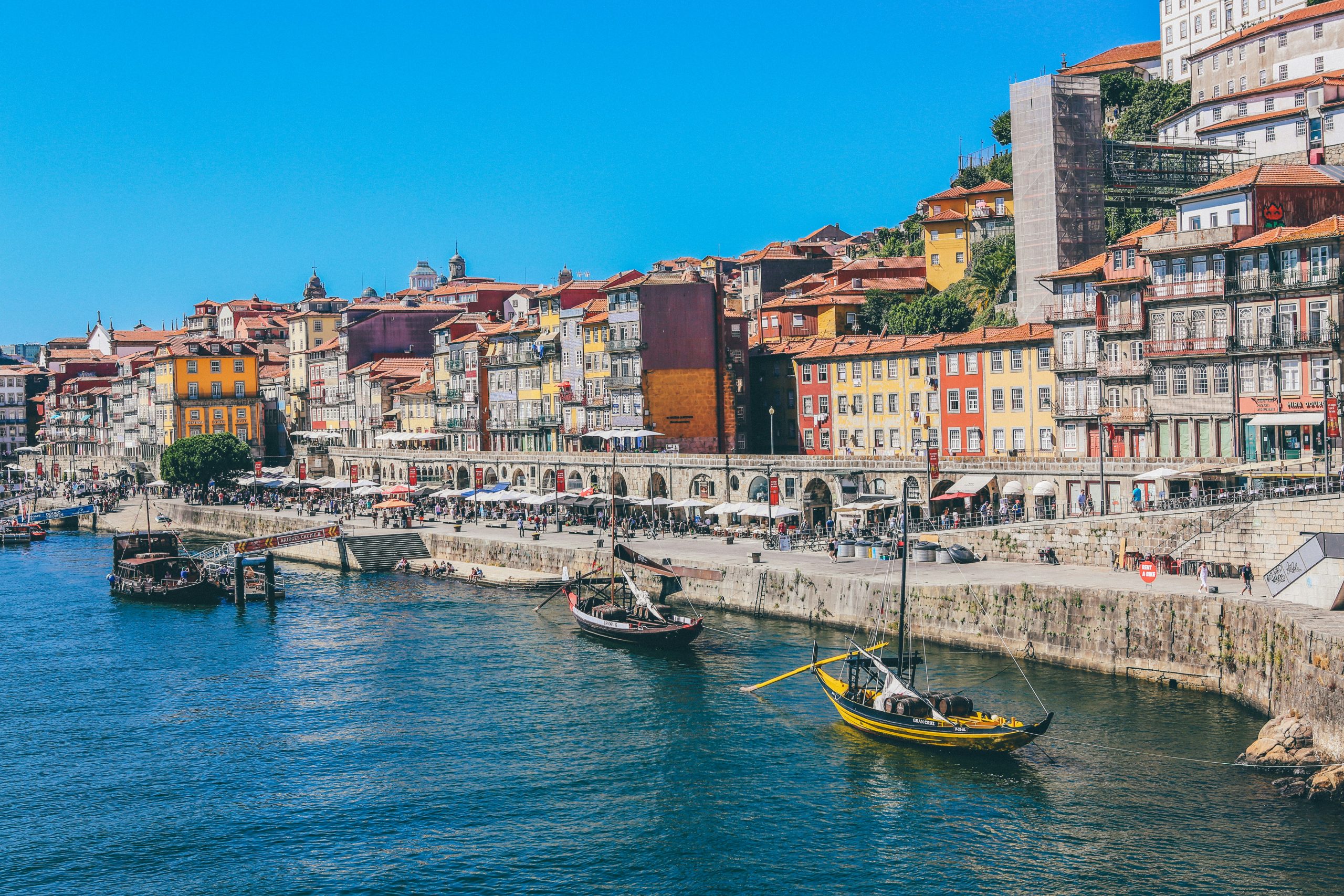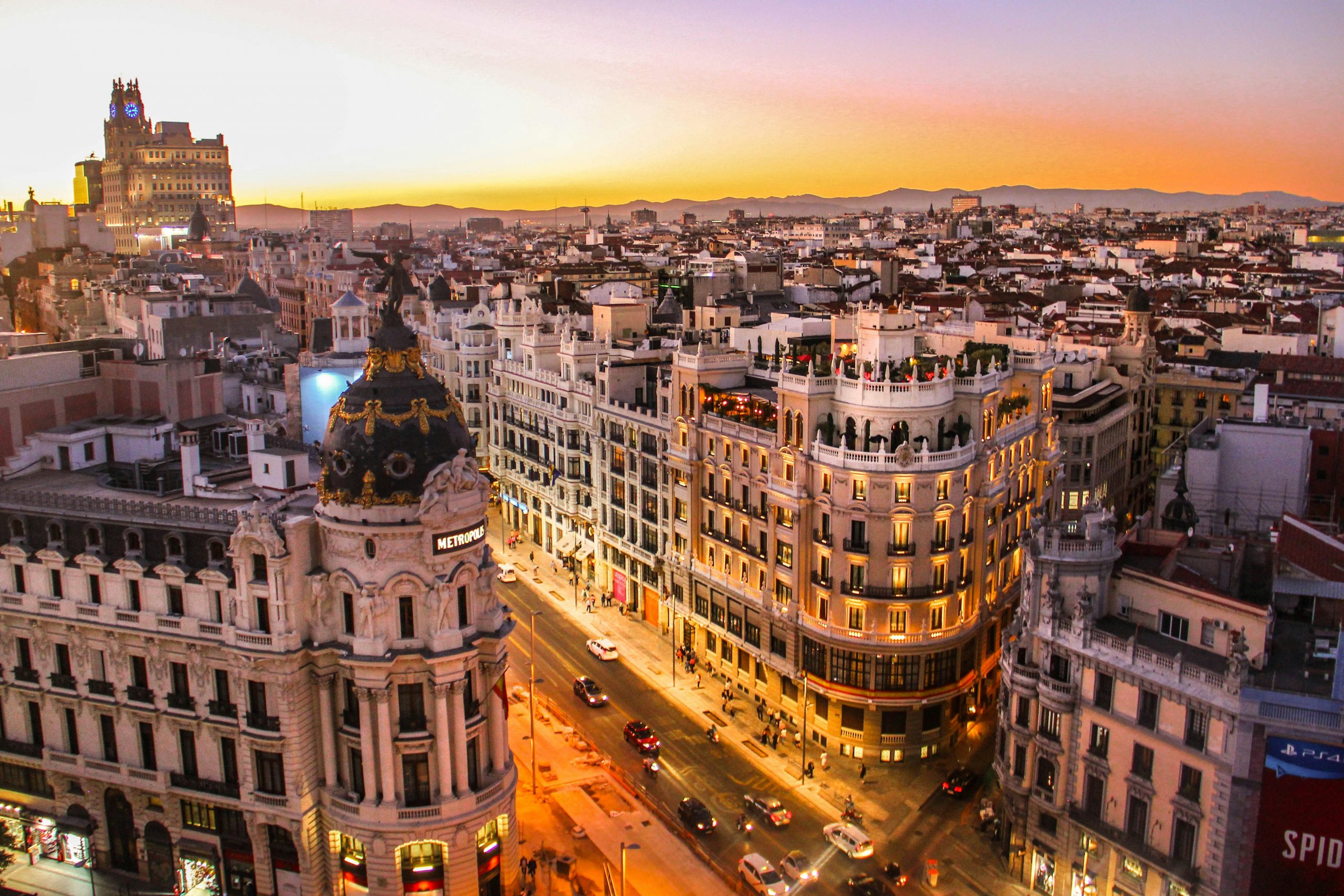Introduction
Portugal has emerged as one of the most desirable destinations for digital nomads. With its sunny climate, vibrant culture, high quality of life, relatively low cost of living (compared to many Western European countries), and excellent infrastructure, Portugal’s Digital Nomad Visa offers remote workers a chance to live in comfort while continuing to work globally.
Introduced and refined in recent years, the Portugal Digital Nomad Visa allows eligible remote workers—freelancers, employees of foreign companies, digital entrepreneurs—to legally reside in Portugal while working online. As of 2025, the visa has clearer rules, more attractive options, and established pathways for residency.
In this guide, we’ll cover:
- Who can apply
- Eligibility criteria and income requirements (2025 updates)
- Types of permits / visa models in Portugal for nomads
- Application process and documentation needed
- Cost of living, benefits, and challenges
- Best cities & lifestyle factors
- Renewal, residency & family inclusion
- Tips & FAQs for smooth visa application
Who Can Apply for Portugal Digital Nomad Visa
The Portugal Digital Nomad Visa is intended for individuals who:
- Work remotely for companies or clients outside Portugal, or are self-employed/freelancers with a business that operates globally.
- Can prove stable income or savings sufficient to support themselves (and optionally their family) while living in Portugal.
- Possess valid travel documentation (passport, etc.), clean criminal record, and relevant remote-work-friendly tools (internet capable, remote-friendly work setup).
Eligible applicants generally include:
- Freelancers / consultants
- Remote employees of foreign companies
- Entrepreneurs running online businesses
- Digital creators, developers, and other remote professionals
Non-eligible categories typically include people who plan to work for Portuguese companies or derive most of their income from within Portugal—though some hybrid rules may allow mix of foreign and local income if properly declared.
Key Requirements (2025 Update)
Here are the updated, essential criteria for applying for the Portugal Digital Nomad Visa in 2025:
| Requirement | Details |
|---|---|
| Income / Financial Threshold | Proof of stable income. The exact required amount varies by permit type, but figures cited in 2025 are €3,200–€3,500/month or substantial bank savings, depending on city and whether dependents are included. (Some streams allow lower thresholds for people already residing in Portugal under other permits.) |
| Remote Work Proof | One or more of: employment contract with foreign employer; freelance contracts/invoices with foreign/clien-base; proof of business ownership or self-employment proving remote capability. |
| Accommodation Proof | A lease agreement, property ownership, or temporary residence confirmation such as hotel or rental booking. |
| Health Insurance | Private health insurance covering Portugal or EU-wide. Public system access depends on permit/residency status. |
| Clean Criminal Record | Certificate(s) from country of origin AND/or residence covering past few years; translated/apostilled if required. |
| Valid Passport & Travel Documents | Passport valid for recommended duration; sometimes local address proofs or tax ID if applying while inside Portugal. |
| Education / Work Experience | Some permits may ask for proof of previous work experience or formal qualifications; less rigid than in some countries but may help strengthen the application. |
| Language / Local Regulations | While Portuguese is not always required, knowledge or willingness to integrate may help; some local rules (tax, declarations) must be followed. |
Types of Portugal Digital Nomad / Remote Work Permits
Portugal offers several visa and residence permit pathways that are suitable for digital nomads. Depending on your situation, one may suit better:
- Temporary Stay Visa for Remote Workers
- Good for people outside Portugal who want to visit and live for less than a year (often renewable).
- Designed for remote workers with proof of foreign income.
- Residence Permit for Remote Workers / Freelancers
- For those who wish to stay longer than a short visit, live in Portugal, and enjoy residency status.
- Requires more documentation but offers more rights (access to local services, longer stay).
- Golden Visa / Other Permits (less directly nomad-focused)
- Portugal also has Golden Visa and other residence programs which can indirectly serve some nomads, especially those willing to invest or property own.
- Not as simple or cheap as pure digital nomad permit, but sometimes used by people wanting multiple paths to residency/citizenship.
- Short-Term Visas / Tourist Extension + Conversion
- Some nomads initially come on Schengen or tourist visas and then convert or extend status if local authorities permit.
- Use with caution—rules may be stricter under Portuguese immigration laws.
Application Process, Documents, Fees & Timelines
✅ Step-by-Step Application Process
- Check Your Eligibility
- Confirm you work remotely for a non-Portuguese company or clients.
- Ensure your monthly income meets the minimum requirement of €3,280–€3,500/month.
- Make sure you have valid health insurance and a clean criminal record.
- Choose the Correct Visa Route
Portugal offers two main routes for digital nomads:- Temporary Stay Visa (up to 1 year, renewable).
- Residence Permit Route (D8 Visa): You get an initial 4-month visa to enter Portugal, then apply for a 2-year residence permit, renewable for another 3 years.
- Prepare the Required Documents
Gather all necessary paperwork in advance (see checklist below). Make sure to translate and apostille documents when required. - Submit Your Application
- If applying from abroad: File your application at your local Portuguese consulate or embassy.
- If applying from inside Portugal: Submit through the Agency for Migration and Asylum (AIMA) offices.
- Pay the Visa Fee
Pay the required application fee at the consulate or online when submitting your application. - Wait for Processing
Processing times can range from 2–3 months abroad to 1–2 months inside Portugal. - Collect Visa & Residence Permit
- If approved abroad, collect your D8 visa, travel to Portugal, and attend an appointment to receive your residence permit card.
- If approved inside Portugal, you’ll receive your residence card directly.
📄 Required Documents
Here’s the standard checklist for 2025:
- Valid passport (minimum 6 months validity).
- Visa application form (completed and signed).
- Recent passport-sized photographs.
- Proof of remote work:
- Employment contract with foreign company, OR
- Freelance contracts/invoices with non-Portuguese clients.
- Proof of income:
- Bank statements or payslips from the last 3–6 months showing at least €3,280–€3,500/month.
- Proof of savings (optional but helpful): showing stability and reserves.
- Accommodation proof: Lease contract, property deed, or hotel/Airbnb booking.
- Health insurance: Private coverage valid in Portugal.
- Criminal background check: From your country of residence (issued within last 3 months, apostilled/translated).
- Motivation/cover letter: Explaining why you want to live in Portugal and how you will support yourself.
- Family documents (if applicable): Marriage certificate, children’s birth certificates, all legalized and translated.
💶 Fees & Costs
- Visa application fee (consulate abroad): ~€75–€90.
- Residence permit application fee (in Portugal): ~€85–€100.
- Residence permit card issuance: ~€150–€170.
- Other costs: Translations, apostille stamps, document shipping, and private health insurance.
⏱️ Processing Times
- Consulate application (from abroad): 2–3 months.
- In-country application (Portugal): 1–2 months.
- Residence card issuance: Usually 2–4 weeks after biometrics appointment.
📝 Quick Checklist
✅ Passport valid for 6+ months
✅ Completed application form
✅ Photos (passport style)
✅ Proof of remote employment/freelance work
✅ Proof of income (€3,280+/month)
✅ Proof of accommodation in Portugal
✅ Private health insurance
✅ Criminal background check (apostilled & translated)
✅ Motivation/cover letter
✅ Family documents (if applying with dependents)
Benefits, Cost of Living & Family Inclusion
🌟 Benefits of the Portugal Digital Nomad Visa
- Legal Stay with Remote Work Rights
- You can legally reside in Portugal while working for foreign employers or clients.
- Stay beyond the 90-day Schengen tourist limit.
- Schengen Travel Access
- As a visa holder, you can travel across 26 Schengen countries without additional visas.
- Pathway to Residency and Citizenship
- Temporary stay visas can be renewed.
- Residence permits can lead to permanent residency after 5 years.
- After 5 years, you may also apply for Portuguese citizenship (one of the fastest timelines in the EU).
- High Quality of Life
- Mild climate, over 300 days of sunshine in southern regions.
- Safe, welcoming society with strong English proficiency among younger generations.
- Beautiful beaches, vibrant cities, and a laid-back lifestyle.
- Affordable Compared to Western Europe
- Portugal is cheaper than Spain, France, or Germany while offering EU standards.
- Tax Opportunities
- Some digital nomads can benefit from Portugal’s Non-Habitual Resident (NHR) tax regime, offering reduced tax rates for 10 years.
- Foreign-sourced income may have favorable treatment.
- Family Friendly
- Spouses and children can join under family reunification.
- Access to schools and healthcare.
💸 Cost of Living in Portugal (2025)
Portugal remains one of the most affordable EU countries for expats and nomads, though Lisbon and Porto have seen price increases.
Here’s an estimated monthly budget for a single digital nomad:
- Housing:
- Lisbon: €1,200–€1,800 for a city-center apartment
- Porto: €800–€1,200
- Secondary cities (Coimbra, Braga, Faro): €500–€900
- Utilities (internet, water, electricity): €100–€150
- Food & groceries: €250–€400
- Dining out: €10–€15 casual meal, €40–€60 dinner for two
- Transport: €40–€60 for public transport pass
- Coworking spaces: €100–€200
👉 Average monthly cost of living:
- €1,500–€2,500 in Lisbon/Porto
- €1,000–€1,800 in smaller towns or coastal areas
👨👩👧 Family Inclusion
The Portugal Digital Nomad Visa is family-friendly, allowing dependents to apply with the main applicant.
Who Qualifies?
- Spouse or registered partner
- Dependent children (under 18, or older if studying and financially dependent)
- Dependent parents (case by case basis)
Extra Income Requirements
The base income requirement increases with each dependent:
- Spouse/partner: +50% of Portuguese minimum wage (~€475/month in 2025)
- Each child: +30% of Portuguese minimum wage (~€285/month per child)
Example:
- Main applicant: €3,280/month
- With spouse + 1 child: €4,040/month minimum
Benefits for Families
- Family members receive residence permits linked to the primary applicant.
- Children can attend public schools for free or affordable fees at international schools.
- Access to healthcare (private at first, public later with permanent residency).
🌍 Why Portugal Appeals to Families & Nomads
- Safety: Ranked among the top safest countries globally.
- Healthcare: Affordable and high quality, with private coverage widely available.
- Education: International schools in Lisbon, Porto, and Algarve.
- Community: Large digital nomad hubs, particularly in Lisbon, Porto, Madeira, and Lagos.
- Lifestyle: From beaches to mountains, Portugal combines modern living with traditional charm.
Best Cities, Challenges & Comparison with Spain
🏙️ Best Cities and Regions for Digital Nomads in Portugal
Portugal offers a wide range of options, from buzzing cities to peaceful coastal towns. Here are the top destinations for digital nomads in 2025:
1. Lisbon
- 🌟 Portugal’s capital and the biggest digital nomad hub.
- 💻 Many coworking spaces, tech events, and startup accelerators.
- 🌍 Large international community with English widely spoken.
- ⚠️ Downsides: Rising rent prices and crowded tourist seasons.
2. Porto
- 🌟 Portugal’s second-largest city, known for its charm and affordability.
- 🍷 Famous for Port wine, riverside cafes, and cultural scene.
- 💻 Growing coworking ecosystem and expat communities.
- ⚠️ Weather is cooler and wetter compared to Lisbon.
3. Madeira (Funchal)
- 🌟 Known as the “Hawaii of Europe.”
- 🌴 Warm year-round climate, breathtaking nature, and beaches.
- 💻 Popular with digital nomads due to the government-backed Digital Nomads Village program.
- ⚠️ Distance from mainland Europe (1.5-hour flight from Lisbon).
4. Algarve (Lagos, Faro, Portimão)
- 🌟 Sunniest region in Portugal, perfect for beach lovers.
- 🏄 Known for surfing, outdoor activities, and resort lifestyle.
- 💻 Growing digital nomad communities in Lagos and Faro.
- ⚠️ Can be seasonal and tourist-heavy.
5. Braga & Coimbra
- 🌟 Smaller university cities with youthful energy.
- 💻 Affordable housing and vibrant cultural life.
- ⚠️ Fewer coworking spaces compared to Lisbon/Porto.
6. Azores
- 🌟 A group of islands with volcanic landscapes and eco-tourism appeal.
- 💻 Suitable for nomads who want a quieter, nature-focused lifestyle.
- ⚠️ Remote location with fewer coworking communities.
⚠️ Challenges and Limitations
While the Portugal Digital Nomad Visa is attractive, there are some downsides to consider:
- Income Requirement
- At least €3,280–€3,500/month, which is higher than in some competing countries (e.g., Colombia, Brazil).
- Bureaucracy
- Portuguese bureaucracy can be slow, and delays are common in scheduling residence permit appointments.
- Rising Cost of Living
- Housing prices, especially in Lisbon and Porto, have increased significantly due to demand from expats and tourists.
- Healthcare at First
- Must purchase private health insurance until you qualify for public healthcare after permanent residency.
- Tax Obligations
- If you stay more than 183 days per year, you are considered a tax resident.
- Portugal’s tax system is complex, so professional advice is often needed.
🇵🇹 Portugal vs 🇪🇸 Spain Digital Nomad Visa
Both Portugal and Spain now offer highly attractive Digital Nomad Visas. Here’s a side-by-side comparison:
| Feature | Portugal D8 Visa | Spain DNV |
|---|---|---|
| Minimum Income | ~€3,280–€3,500/month | ~€2,160/month |
| Initial Duration | 1 year (Temporary) / 2 years (Residence Permit) | 1 year (renewable) |
| Renewal | Up to 5 years total | Up to 5 years total |
| Path to Citizenship | 5 years (fastest in EU) | 10 years (2 for Latin America/Philippines, etc.) |
| Tax Incentives | NHR regime (10 years) | Beckham Law (6 years, flat 24% tax) |
| Cost of Living | Lower than Spain in general, but Lisbon/Porto rising | Higher in Madrid/Barcelona, but smaller cities affordable |
| Nomad Hubs | Lisbon, Porto, Madeira, Algarve | Barcelona, Madrid, Valencia, Canary Islands |
| Language Barrier | Portuguese (English widely spoken in cities) | Spanish (also widely spoken, but English less common outside big cities) |
👉 Verdict:
- Spain has a lower income requirement, making it more accessible.
- Portugal offers faster citizenship (5 years), which is unique in Europe.
- Both provide excellent tax benefits under special regimes.
Renewal, Residency, FAQs & Conclusion
🔄 Renewal & Extension
Temporary Stay Visa (1 Year)
- Designed for short-term digital nomads.
- Renewable if requirements continue to be met.
- Many applicants later switch to the Residence Permit route for longer stays.
Residence Permit (2 Years)
- Issued after entering Portugal on a D8 visa.
- Renewable for another 3 years.
- After 5 years total, you can apply for permanent residency.
👉 Key tip: Keep income proof, health insurance, and accommodation contracts updated before renewal.
🏛️ Permanent Residency & Citizenship
Permanent Residency
- After 5 years on legal residence permits, you may apply for permanent residency.
- This allows indefinite stay and access to most benefits of Portuguese citizens.
Citizenship
- Portugal offers one of the fastest citizenship pathways in the EU.
- After 5 years of legal residency, you can apply for a Portuguese passport.
- Requirements include:
- A2 level Portuguese language test (basic level).
- Clean criminal record.
- Proof of integration (housing, ties to community).
👉 This makes Portugal one of the best long-term options for digital nomads seeking an EU passport.
❓ FAQs About Portugal Digital Nomad Visa (2025)
1. What is the minimum income requirement?
You need to show at least €3,280–€3,500 per month in stable income.
2. Can I bring my family?
Yes. Spouse, children, and even dependent parents can join, but you need higher income to support them.
3. Do I need private health insurance?
Yes. Private insurance is required until you qualify for public healthcare after obtaining permanent residency.
4. How long does processing take?
2–3 months if applying abroad, 1–2 months if applying inside Portugal.
5. Can I work for Portuguese companies on this visa?
No. At least 80% of your income must come from foreign clients or employers.
6. Does Portugal offer tax benefits?
Yes. Many digital nomads qualify for the Non-Habitual Resident (NHR) regime, which gives tax breaks for 10 years.
7. Can this lead to citizenship?
Yes. After 5 years of residence, you can apply for Portuguese citizenship, one of the fastest in Europe.
🌟 Conclusion
Portugal’s Digital Nomad Visa has become one of the most attractive residence programs in Europe in 2025.
It combines:
- A beautiful and affordable lifestyle.
- Access to the Schengen Area.
- A fast-track path to EU citizenship in just 5 years.
- Strong nomad hubs in Lisbon, Porto, Madeira, Algarve, and beyond.
While the income requirement is higher than in some countries, Portugal balances it with excellent infrastructure, safety, tax benefits, and long-term opportunities.
For digital nomads seeking not just a temporary base but a gateway to the EU, Portugal is one of the top choices in 2025.



